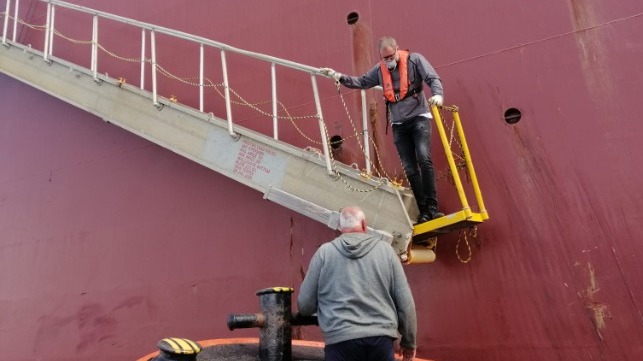Op-Ed: Will We Kick the Can Down the Road on World Maritime Day?

World Maritime Day is celebrated annually on September 30, and each year has a new theme. This year it is framed as "Seafarers: at the core of shipping's future.”
Something so obvious should not need promotion in 2021. The truth is that it has taken a global pandemic to refocus the shipping sector's attention on a longstanding vulnerability: the rights of the industry’s 1.4 million seafarers.
It took a “humanitarian crisis” declaration from UN Secretary General António Guterres before we saw real movement on the crew change crisis. His words prompted coordinated action and international media coverage, including new attention to cases of abandonment and non-payment of wages.
However, that global coverage is now waning as the popular press moves on to the next story, while national priorities continue to take precedence for port states. Suicides, vessel abandonments, missing seafarers, lack of vaccinations, denied medical treatment, denied crew changes, untreated mental illness and communication failures continue day-in and day-out.
Noting the good operators’ best efforts to address these challenges, the question remains: “Will the situation of poor working conditions - encouraged and enabled by the 'bad and ugly' end of the industry operator spectrum - soon change?”
In short: No. There remains a systemic failure at the foundations of our "complex" industry, with widespread impunity, minimal transparency and minimal enforcement action against known abusers.
The current policy at IMO means that the perpetrators of human and labor rights abuses are not named and exposed. This reinforces the public perception of a closed system that looks after its own. IMO could end this policy of silence through the fair and reasonable spotlighting of flag, port and coastal state authorities, owners, operators, managers, and recruiting agencies acting against the interests and fundamental rights of the seafarer.

that matters most
Get the latest maritime news delivered to your inbox daily.
Will World Maritime Day 2021 be more kicking the can down the road, dressed up as “ongoing policy developments subject to committee meeting decisions?” Or will it be a turning point where seafarers and their families are truly put first? History will be the judge.
A former military seafarer, veteran Royal Marines Officer and Barrister (Counsel), David Hammond has practical maritime and legal operational experience, having served in the North and South Atlantic Oceans, the Mediterranean, the Indian Ocean, Arabian Gulf and South China Seas. As CEO of the UK-based NGO Human Rights at Sea, he is an advocate for the ongoing international development, advocacy and drive for the explicit codification of the concept of ‘human rights at sea’ throughout the maritime environment.
The opinions expressed herein are the author's and not necessarily those of The Maritime Executive.
